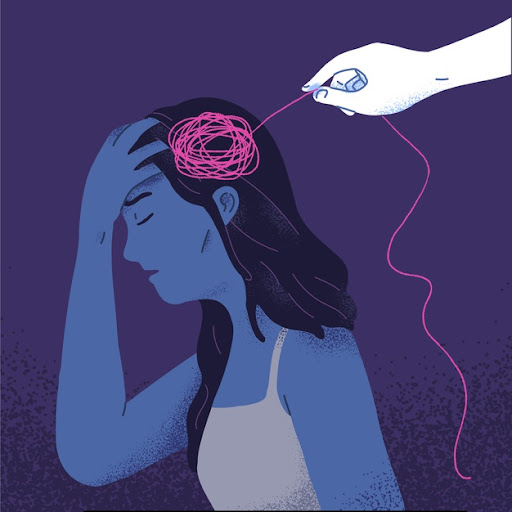Hotline: +381 61 63 84 071
Atina’s new project is to enhance access to justice for victims of human trafficking

Atina’s new project is to enhance access to justice for victims of human trafficking
Justice for victims cannot be achieved if they are silenced by trauma or disempowered by systems that should protect them. With this project, we aim to change that paradigm.
Atina is launching a new project, "Enhancing access to justice for victims of human trafficking," from June 1, 2025, to February 1, 2026. This initiative is not just another project—it is a call to transform a system that has long ignored the needs of those it should protect.
The project's goal is clear and deeply necessary: to provide access to justice that does not harm, silence, or disempower, but instead offers support, restores a sense of control, and upholds the dignity of victims as the foundation of justice. It is supported by the project 'Strengthening the Fight against Trafficking in Human Beings in Serbia', implemented within the joint programme of the European Union and the Council of Europe 'Horizontal Facility for the Western Balkans and Türkiye' (2023–2026).
This initiative stems from Atina’s two decades of daily work with women and girls who have survived human trafficking. Their stories do not begin or end with identification. The real challenges then start in judicial labyrinths that often punish more than they protect. In a system where laws exist, but practice still painfully lags, victims face walls of silence, misunderstanding, and institutional impotence.
For victims, court processes often mean years of waiting, reliving trauma, and struggling with a system that does not understand their vulnerability.
The project as a response to systemic failures
The 2023 GRETA report once again highlighted serious shortcomings in the protection system: lack of psychological preparation, uncoordinated procedures, inconsistent institutional practices, and the fact that many professionals lack the knowledge and sensitivity needed to work with trauma. In such an environment, justice is not offered to victims—they are asked to earn it, repeatedly proving they deserve protection.
Atina has been demonstrating for years that a different approach is possible. Instead of fragmented support, Atina has developed a model that integrates legal, psychological, and social support through the engagement of specialized lawyers. These lawyers not only understand the legal complexities of human trafficking cases but also closely collaborate with Atina’s psychological and psychosocial support team, offering an integrated support model where victims receive emotional preparation, legal follow-up, and long-term, socially inclusive post-treatment support without influencing their statements or testimony. This model yields results but survives thanks to donor support and personal dedication, not systemic will.
By developing a comprehensive handbook for psychological preparation and harm prevention, based on the real experiences of victims and the expertise of trusted professionals, the initiative aims to help Serbia align its practices with the Council of Europe Convention. Additionally, the project promotes institutional dialogue and cooperation, encouraging state actors to adopt methodologies that align with legal standards and prioritize human dignity and recovery. Justice for victims cannot be achieved if they are silenced by trauma or disempowered by systems that should protect them but hinder them. With this project, we aim to change that paradigm.
Voices of women at the heart of change
A special focus of the project is the active inclusion of survivors' voices—not as passive recipients of support, but as experts of their own experience. Interviews will provide deep insights into how victims perceive court processes and how they must go through them with minimal retraumatization. Based on testimonies from victims and expert opinions, the project team will develop a handbook offering clear and practical strategies for preserving survivors' psychological well-being during court processes. Special emphasis will be placed on reducing power imbalances, respecting victims' autonomy, and avoiding standard practices that risk silencing or further traumatizing them. The handbook will also contain guidelines for creating a safe and supportive courtroom environment, with the understanding that justice begins with protecting those who have been most harmed.
Building institutional accountability
In addition to creating the handbook, a roundtable will be organized with representatives from relevant institutions—from higher courts and public prosecutors' offices to social welfare centers and women's protection organizations—to review the handbook and jointly consider ways in which legal procedures can be directed towards supporting victims, rather than imposing additional burdens on them. In addition to the roundtable, targeted dialogues will be organized between different sectors to discuss how institutions can shift from transactional forms of support to transformational support for victims of human trafficking. These discussions will redefine the concept of "support," emphasizing safety, trust, and autonomy, while simultaneously challenging harmful practices based on paternalism or distrust. Women and girls should not be forced to "prove" their suffering to be worthy of protection—this principle will be woven into every segment of these discussions.
The handbook will be distributed to key actors working with victims—prosecutors, judges, legal advisors, social workers, police officers, and association representatives—as those who play a crucial role in whether victims will be further traumatized or have a chance to restore their dignity. Distribution will be accompanied by guidelines to encourage its practical application in existing procedures, strengthening institutional accountability for creating environments where women feel safe, respected, and heard.
"This material was produced with the financial support of the European Union and the Council of Europe. The contents are the sole responsibility of the author(s) and do not necessarily reflect the official views of the European Union or the Council of Europe."













 FACEBOOK
FACEBOOK TWITTER
TWITTER YOUTUBE
YOUTUBE